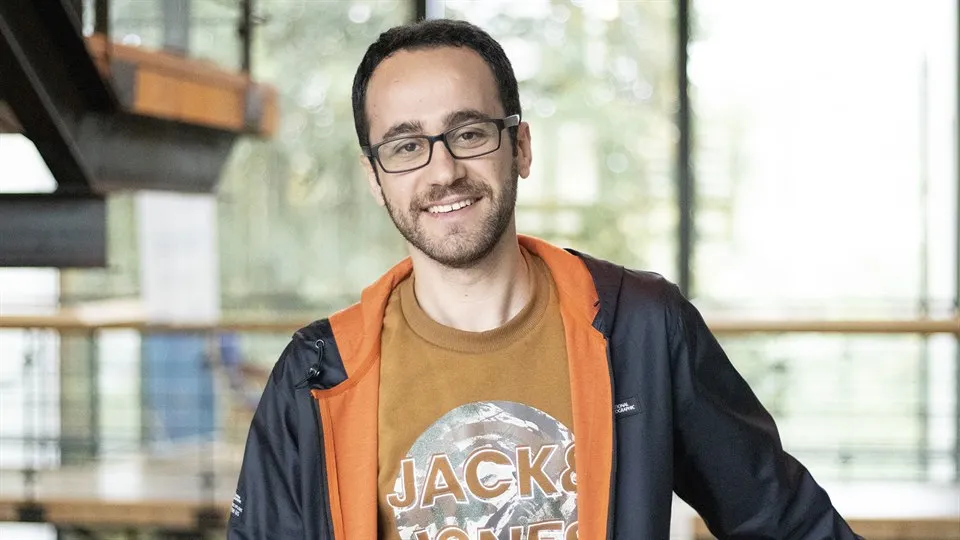Machine learning combined with embedded systems – the focus area for PhD‑student Veysi Adin
In September 2022, Veysi Adin arrived in Sweden, to start his PhD-studies at STC Research Centre. His research will focus on machine learning for resource-constrained embedded systems and he looks forward to contributing to an exciting and relatively young field of research.
Why did you choose to apply for the position as an PhD-student at Mid Sweden University?
There are two reasons, the first reason is field-wise. I have a great interest in the field of machine learning, and I wanted to combine machine learning with embedded systems due to my background. While looking for Ph.D. positions, I came across this Ph.D. position, where the title for the position was "Electronics focused on Machine learning on embedded systems". It was the exact field that I wanted to work on, therefore, I immediately wanted to be part of it.
The second reason is experience-wise. I'm from Turkey, and I think Turkey both geographically and culturally is a bridge between Asia and Europe. I wanted to experience both cultures individually at their centre. Luckily, I already had a chance to experience the Asian culture in South Korea. It was time for me to experience European culture, and I can't think of any place better than Sweden to experience European culture.
What is going to be your focus during your PhD-studies?
The focus of my Ph.D. study is on machine learning for resource-constrained embedded systems. During my Ph.D. studies, I will have a good understanding of this field, investigating current machine learning methods on low-power microcontrollers. I will be analysing energy requirements and limitations for deploying machine learning models to the embedded systems.
As a result, I'm hoping to contribute to an exciting and relatively young field of research and develop skills that are relevant to both academia and industry.
Tell us about your background?
I'm from Turkey, I have completed my bachelor's in Electrical & Electronic Engineering from Mersin University and ranked first among Engineering Faculty. Following my graduation, due to my interest in Asian culture, landscape, and the enormous electronic industry, I started working at the Korea Institute of Science and Technology (KIST) (Seoul, South Korea) as an intern. During my internship, I worked with a start-up company in the medical field, where I worked on the medical device controller called micro-debrider which is used in endoscopic sinus surgeries. Working in the medical device field, taught me about medical device standards and software lifecycle standards, such as IEC62304, ISO13485, ISO 14971, and IEC60601-1. Working on the development of medical devices helped me understand the importance of safety and how to achieve safety by following best practices and standards.
After finishing my internship, I started my master’s degree in the field of AI & Robotics at the University of Science and Technology and continued working at KIST as a research assistant. During my master’s degree, I worked on the development of a medical device control software framework using robotic middleware (ROS2), industrial fieldbus (EtherCAT), real-time Linux, C++, Qt, Doxygen, and CiA402 standard.
Furthermore, I took several courses related to artificial intelligence and machine learning due to my interest in using AI in embedded systems and healthcare. I attended the AI and Big Data Hackathon with my team, and we implemented an AI-based diagnosis assistant running on the web. We built AI models for diagnosis and implemented web application.
When did you move to Sundsvall? What do you think about the city and of Sweden so far?
I moved to Sundsvall on the 11th of September, so I haven’t been here long. So far, I think Sundsvall is a small, peaceful, and convenient city with beautiful nature. Norra Berget is my favourite spot so far.
Research group: Autonomous Sensor Systems group
Research project: Industrial Internet of Things - Autonomous smart components
Supervisor: Sebastian Bader
